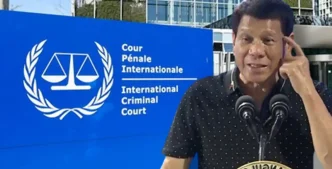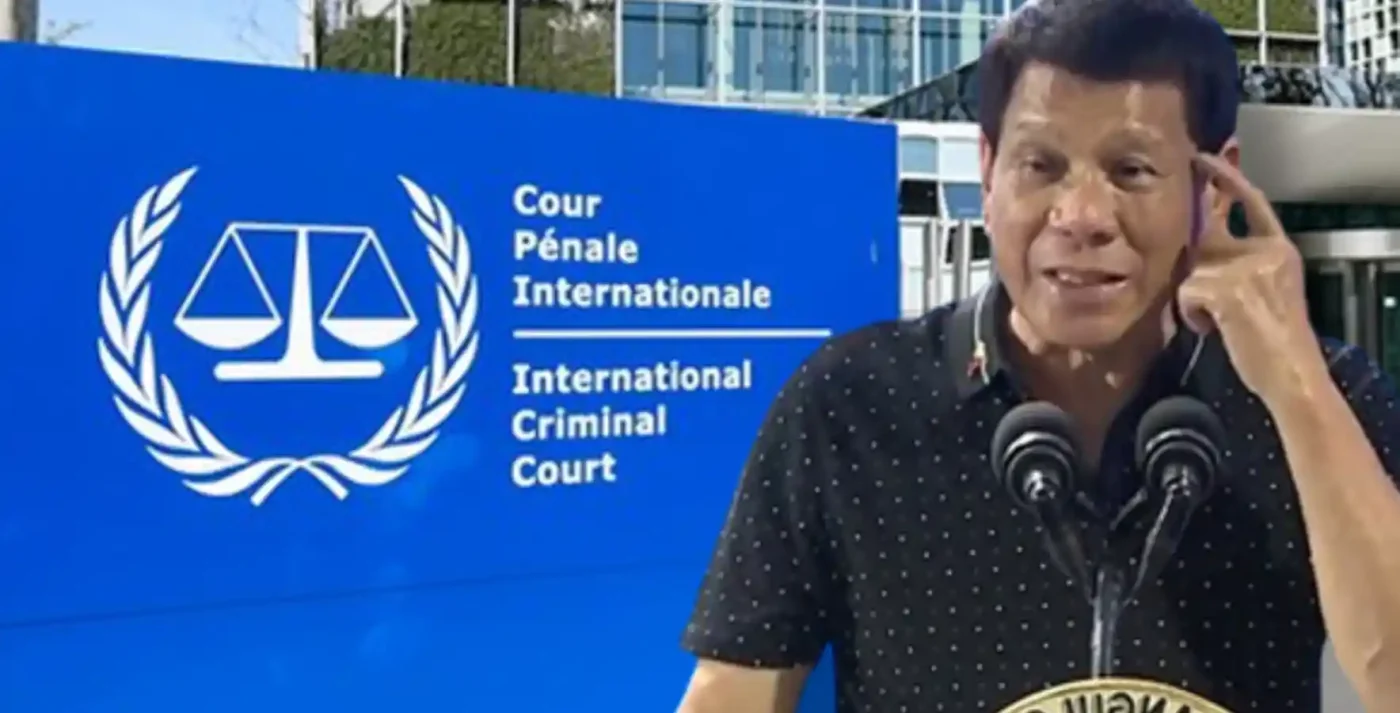In a significant escalation of his legal defense, former Philippine President Rodrigo Duterte is seeking to disqualify two International Criminal Court (ICC) judges from his case, alleging bias in their prior rulings on jurisdiction. The move, initiated by Duterte’s legal team, centers on the contentious issue of whether the ICC retains authority to investigate alleged crimes against humanity tied to his administration’s brutal anti-drug campaign, which left thousands dead. As the case unfolds, it raises profound questions about international justice, national sovereignty, and the legacy of Duterte’s tenure.
A Bold Legal Maneuver
On May 12, 2025, Duterte’s lead counsel, Nicholas Kaufman, submitted an 11-page request to the ICC’s three-member Presidency, urging the disqualification of Pre-Trial Chamber (PTC) 1 judges Rene Adelaide Alapini-Gansou and Maria del Socorro Flores Liera. Both judges were part of the chamber that, in 2021, authorized the ICC prosecutor to launch an investigation into Duterte’s drug war policies and later permitted the resumption of the stalled probe in 2023. Kaufman argues that their prior involvement in these decisions compromises their impartiality on the central issue of jurisdiction—a matter he describes as having “far-reaching consequences” for the case.
“The recourse sought will, simultaneously, preserve Mr. Duterte’s right to objectively impartial adjudication” said Kaufman in the petition. He contends that allowing judges who have already formed opinions on jurisdiction to rule on the defense’s challenge undermines the fairness of the process. The legal team’s position hinges on the assertion that Gansou and Liera cannot approach the issue with fresh perspectives, having previously endorsed the ICC’s authority to investigate despite the Philippines’ withdrawal from the Rome Statute in 2019 under Duterte’s administration.
Background of the Dispute
The ICC’s investigation into Duterte’s anti-drug campaign, launched during his presidency from 2016 to 2022, focuses on allegations of systematic extrajudicial killings that human rights groups estimate resulted in over 6,000 deaths, though some activists claim the number could be as high as 30,000. The campaign, characterized by violent police operations and vigilante actions, drew international condemnation for its apparent disregard for due process. In 2018, Duterte announced the Philippines’ withdrawal from the Rome Statute—the treaty establishing the ICC—arguing that the court lacked jurisdiction over the country’s internal affairs. The withdrawal became effective in 2019, but the ICC maintains that it retains authority over crimes committed while the Philippines was still a signatory.
The current legal battle stems from the defense’s contention that the ICC overstepped its mandate by continuing to pursue the case post-withdrawal. Kaufman has criticized the structure of the Rome Statute itself, noting what he calls a “quirk” that allows jurisdiction to be litigated multiple times before the same chamber. “It is a quirk of the Rome Statute which permits jurisdiction to be litigated twice before the same [PTC]” he said. He further argued that both the prosecution and judiciary bear responsibility for ensuring a fair process and should have supported the defense’s earlier request for the judges to recuse themselves.
Rejection of Earlier Requests
Prior to the disqualification petition, Duterte’s legal team had, on May 1, 2025, filed a challenge to the ICC’s jurisdiction and invited Judges Gansou and Liera to excuse themselves from the case. This “invitation” was dismissed by PTC 1 on May 6, with the chamber citing procedural guidelines that prohibit preemptive requests for a judge’s recusal by involved parties. The decision emphasized that such actions “lack procedural propriety,” effectively rebuffing the defense’s initial strategy.
Undeterred, Kaufman and his team escalated their approach by formally requesting disqualification through the ICC Presidency. They also took issue with the prosecution, led by Karim Khan, for dismissing their earlier invitation as “nonsensical.” The defense argues that the prosecution’s stance reflects a broader failure to uphold the principles of a fair adversarial process, particularly on an issue as pivotal as jurisdiction.
Implications for International Law
The Duterte case is emblematic of a broader tension between national sovereignty and international accountability. For many developing nations, the ICC has long been a polarizing institution, often perceived as disproportionately targeting leaders from the Global South while sparing those from more powerful states. Duterte’s withdrawal from the Rome Statute in 2019 was framed as a rejection of foreign interference, a sentiment that resonates with segments of the Philippine public who view his drug war as a necessary, if brutal, response to rampant crime.
Legal experts suggest that the outcome of the jurisdiction challenge could set a precedent for how the ICC handles cases involving states that withdraw from the court’s oversight. If the defense succeeds in disqualifying the judges or overturning the ICC’s claim to jurisdiction, it may embolden other leaders facing similar scrutiny to challenge the court’s authority. Conversely, a ruling in favor of the ICC could reinforce its mandate to pursue justice for grave crimes, even in the face of political resistance.
Beyond the legal ramifications, the case carries significant political weight in the Philippines. Duterte remains a polarizing figure—revered by supporters for his tough-on-crime policies and reviled by critics for alleged human rights abuses. His daughter, Sara Duterte, currently serves as Vice President, and the family’s political influence continues to shape national discourse. The ICC probe, if it proceeds, could reignite debates over accountability and the rule of law in a country still grappling with the legacy of his presidency.
Public and International Reactions
Reactions to Duterte’s legal maneuvers have been mixed. In the Philippines, some citizens express skepticism about the ICC’s intentions, echoing Duterte’s narrative of foreign overreach. Others, particularly victims’ families and human rights advocates, see the investigation as a rare opportunity for justice. “We’ve waited years for accountability” said Maria Reyes, whose brother was killed in a 2017 police operation. “The ICC is our last hope.”
Internationally, the case has drawn attention from human rights organizations and governments alike. Groups like Amnesty International have urged the ICC to stand firm, arguing that impunity for atrocities undermines global standards of justice. Meanwhile, some Southeast Asian nations, wary of external scrutiny over their own domestic policies, are closely monitoring the proceedings for potential implications on regional autonomy.
Challenges Ahead for Duterte’s Defense
The road ahead for Duterte’s legal team is fraught with obstacles. Disqualifying judges at the ICC is a rare and difficult undertaking, requiring clear evidence of bias or procedural irregularity. Legal analysts note that the defense’s argument—centered on the judges’ prior rulings—may not meet the high threshold for disqualification, as judicial consistency on legal interpretations is often expected rather than penalized. Moreover, the ICC’s commitment to prosecuting crimes against humanity suggests that it is unlikely to back down easily, even in the face of jurisdictional challenges.
Kaufman has indicated that the defense is also preparing additional motions, including a potential petition for interim release should Duterte face arrest. While the former president has not yet been formally charged, the specter of an ICC warrant looms large, particularly as the investigation gathers momentum. The defense’s strategy appears to be twofold: to delay or derail the probe through procedural challenges and to cast doubt on the ICC’s legitimacy in the eyes of the Philippine public.
A Case with Global Resonance
As the legal battle over jurisdiction unfolds, the Duterte case serves as a litmus test for the ICC’s relevance in an era of rising nationalism and skepticism toward multilateral institutions. For the court, securing a conviction or even advancing the investigation would signal its resolve to hold powerful figures accountable, regardless of political pushback. For Duterte, the stakes are personal as much as political—a potential trial could tarnish his legacy and expose him to international censure.
In the broader context of Southeast Asia, where authoritarian tendencies and human rights concerns often intersect, the outcome could influence how other leaders navigate international scrutiny. Will the ICC’s pursuit of justice prevail over claims of sovereignty, or will Duterte’s challenge mark a turning point in the court’s ability to enforce accountability? As hearings loom, the world watches a case that could redefine the boundaries of global law.
















